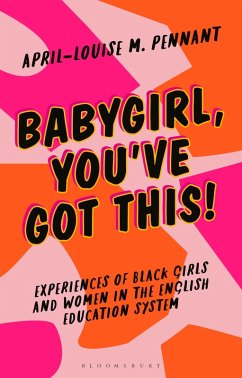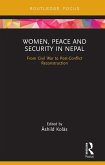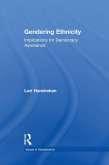How do Black women experience education in Britain?
Within British educational research about Black students, gender distinctions have been largely absent, male-dominated or American-centric. Due to the lack of attention paid to Black female students, relatively little is known about how they understand and engage with the education system, or the influences which shape their long-term strategies and decision-making in order to gain educational 'success'.
This book will illustrate the educational experiences and journeys of Black British women graduates and considers the influence of the intersections of race, gender, ethnicity, culture and social class on their educational journeys. April-Louise Pennant uniquely documents the entire educational journey - from primary school to university - within both predominantly white (PW) and predominantly global majority (PGM) educational institutions in order to examine the various accessibility, financial and academic hurdles which face Black girls and women.
The book combines theoretical frameworks such as Critical Race Theory, Bourdieu's Theory of Practice and Black Feminist epistemology, alongside the personal accounts of the author and a range of Black British women graduates. Through analysis of the strategies, choices and decisions made by Black British women in their educational journeys, the book ultimately provides insights into how to navigate the education system effectively, and provides alternatives to normalized understandings of educational 'success'.
Within British educational research about Black students, gender distinctions have been largely absent, male-dominated or American-centric. Due to the lack of attention paid to Black female students, relatively little is known about how they understand and engage with the education system, or the influences which shape their long-term strategies and decision-making in order to gain educational 'success'.
This book will illustrate the educational experiences and journeys of Black British women graduates and considers the influence of the intersections of race, gender, ethnicity, culture and social class on their educational journeys. April-Louise Pennant uniquely documents the entire educational journey - from primary school to university - within both predominantly white (PW) and predominantly global majority (PGM) educational institutions in order to examine the various accessibility, financial and academic hurdles which face Black girls and women.
The book combines theoretical frameworks such as Critical Race Theory, Bourdieu's Theory of Practice and Black Feminist epistemology, alongside the personal accounts of the author and a range of Black British women graduates. Through analysis of the strategies, choices and decisions made by Black British women in their educational journeys, the book ultimately provides insights into how to navigate the education system effectively, and provides alternatives to normalized understandings of educational 'success'.









